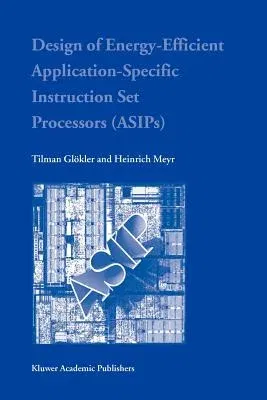Tilman Glökler
(Author)Design of Energy-Efficient Application-Specific Instruction Set Processors (Softcover Reprint of the Original 1st 2004)Paperback - Softcover Reprint of the Original 1st 2004, 7 December 2010

Qty
1
Turbo
Ships in 2 - 3 days
In Stock
Free Delivery
Cash on Delivery
15 Days
Free Returns
Secure Checkout
Print Length
234 pages
Language
English
Publisher
Springer
Date Published
7 Dec 2010
ISBN-10
1441954252
ISBN-13
9781441954251
Description
Product Details
Authors:
Book Edition:
Softcover Reprint of the Original 1st 2004
Book Format:
Paperback
Country of Origin:
NL
Date Published:
7 December 2010
Dimensions:
23.39 x
15.6 x
1.37 cm
ISBN-10:
1441954252
ISBN-13:
9781441954251
Language:
English
Location:
New York, NY
Pages:
234
Publisher:
Weight:
362.87 gm

